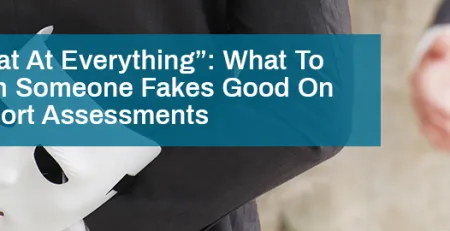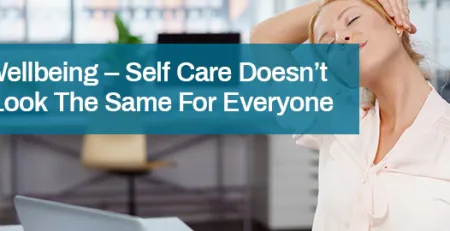All Feelings Allowed – Come as You Are
“We say we’re fine, even when the truth is, we’re ecstatic, exhausted, grateful. Or even freaking out. Every time we just go through the motion, we miss out on the chance to connect for real. In times of crisis like this, we need each other more than ever.”1
Don’t just get loud, #GetReal about how you feel.
May 4-10, 2020 is the Canadian Mental Health Association’s (CMHA) Annual #MentalHealthWeek, visit https://mentalhealthweek.ca/ to learn more.
Outbreak. Pandemic. Quarantine. Lockdown. Isolation.
Words once reserved for governing bodies and lead actors in thrilling movies, are now at the forefront of our daily lives. As surreal as the current state of the world may feel amidst the COVID-19 pandemic, we are experiencing a once-in-a-century pathogen that is threatening life as we know it. Furthermore, we have seen an unprecedented shift in the way humankind connects to present a united front aimed at preserving life, supporting frontline workers and banding together, while apart.
Orders to stay at home and physically distance from loved ones while simultaneously working remotely, binging on Netflix and learning a new skill didn’t sound half bad, in theory. But as time passes by, the ramifications of our immediate and abrupt upheaval from the normalcy of our daily lives is still being felt around the globe.
The conversations surrounding the pandemic, must first and foremost, prioritize health and safety in a physical sense, but as most of us know it also poses an immediate threat to our personal well-being, mental health and psychological safety.
The Permission to Feel
Every day since the onset of lockdown, I have received some sort of email, text message, phone call, pop-up ad, recommended article or video, that inevitably leads me to experiencing current events through a lens different than my own. There are some days when the messages I receive do a wonderful job inspiring or motivating me, and other days when they do the exact opposite. What makes this even more interesting is that for the most part, the messages I receive on the good and less-than-good days are all delivered in a similar positive and optimistic tone.
Which leaves me asking, “why don’t I always have days full of motivation and inspiration?”
Well, for starters, I’m human, just like everyone else. My emotions, thoughts and behaviours ebb and flow like water. Sometimes they flood the shore, and other times they drain so far away I can barely see, hear or feel them. No matter what, those emotions, thoughts and behaviours still exist, even when they slip out of focus and into the periphery.
The main message that I want to share is one of validation and acceptance. More importantly, how to be mindful of inadvertent invalidation and potentially toxic positivity, to others and yourself. If you have found yourself on the receiving end of either, know that you are not going crazy and that your feelings are valid and real.
The Weight of Words
Your choice of words when communicating with others, especially in a remote/virtual/digital world, carry more weight than you think. Not sure if you are inadvertently invalidating others or yourself? If you often start your responses to others or thoughts to yourself with these statements, you very well might be.
- “I’m sorry you feel that way…”
- “I’m sure it wasn’t that bad…”
- “You’ll get over it…”
- “At least it’s not…”
- “Don’t be dramatic…”
- “Calm down…”
- “Suck it up…”
- “Just stop caring so much…”
- “You overthink everything…”
- “That didn’t happen…”
- “Stop making things up…”
- “It’s all in your head…”
The common threat that holds these statements together is the power they hold to invalidate feelings through denial, rejection, or dismissal.
Invalidation “sends the message that a person’s subjective emotional experience is inaccurate, insignificant, and/or unacceptable.” 2
Validation says “I hear you. I see you. I get it. I care about your feelings.” 2
The Dark Side of The Bright Side
Have you ever felt annoyed or uncomfortable in the presence of positive vibes? Have you ever heard of toxic positivity?
“The term ‘toxic positivity’ refers to the concept that focusing on so-called positive emotions and rejecting anything that may trigger negative emotions is the right way to live life… a sort of unintentional gaslighting – which, whether the individual realises it or not, ends up stopping someone short of expressing how they truly feel.”3
A great article by Samara Quintero, LMFT, CHT and Jamie Long, PsyD, says that there are a few signs to look out for if you think you may be experiencing the effects of toxic positivity.
- You hide/mask your true feelings
- You repress/dismiss emotions
- You feel guilty for what you feel
- You minimize other people’s experiences (i.e. oversharing “feel good” quotes or statements)
- You invalidate others by giving your perspective (i.e. “it could be worse…” statements)
- Shaming or chastising others for expressing frustration or anything other than positivity
- Brushing off things that are bothering you (i.e. “it is what it is…” statements)
The brute force that sometimes accompanies a sunny disposition towards struggle or hardship, can be very harmful to mental health and safety. Exacerbated further by human nature, the fear of rejection and judgement, we are silenced by an unconscious need for acceptance and understanding. Most people don’t want to be viewed as a “negative Nancy”, or pessimist, and when push comes to shove you either embrace your courage and speak up, or remain quiet and continue the charade saying “I’m fine”. But what do you really mean?
The Space to Exist
While it may leave us feeling less of what we really feel, our innate need to connect, uplift or reality check ourselves and others, makes perfect sense. Especially in the context of isolation and the inescapable self-reflection that inevitably happens within.
You have permission to:
- Fall Apart
- Need (whatever you need)
- Start Over
- Be Alone
- Take Your Time
- Feel (whatever you feel)
So, share the good, positive, and optimistic emotions, and the bad, ugly, and sometimes unnameable ones. Getting real, being authentic, and openly addressing the big, fat, nameless monsters we secretly harbor, could offer a sense of relief to those of us still battling the rushing tides of our own mental health.
This is NOT a call to action.
If you’re reading this, know that I don’t expect you to do anything with this information. No action required, no next steps, no tips or tricks to change your life. And sometimes, it’s as simple as that.
Are you or someone you know experiencing a mental health crisis?
- Go to the nearest hospital, or
- Call 911, or
- Call a Crisis Line (Canada | United States)
Resources
Contact a trusted community organization like the Canadian Mental Health Association (CMHA) or Mental Health America (MHA) to learn more about support and resources in your area. For medical advice, contact your health care provider.
References:









